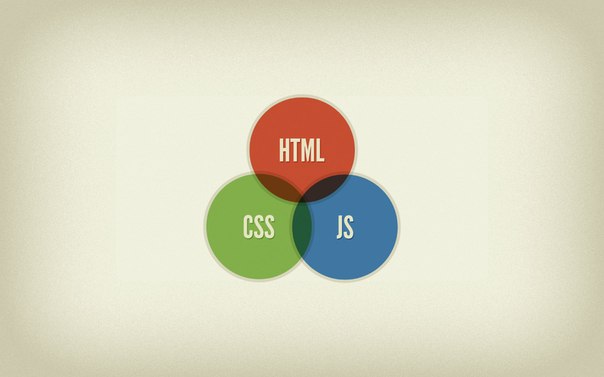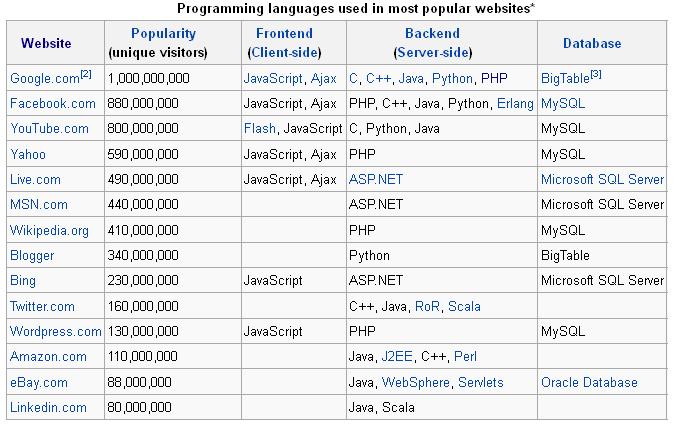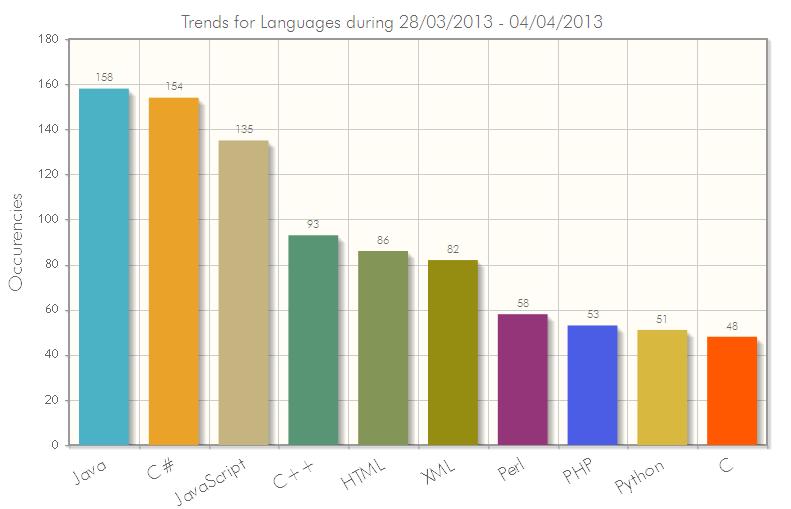
Programming languages are the brain behind everything on the Web. Programming languages make things work on the Web.
Since the history of programming languages goes back to 1950s, there have been various types created. The rapid growth of the Internet gave birth to 100’s web programming languages. Wiki Web Pedia takes a look at most popular programming languages used in website building and web development today.
Understanding the basics of web programming and being familiar with top programming languages can help you realize how websites work and give tips on choosing the right language for your own website programming and web developing.
Most popular websites are dynamic. The development of the dynamic sites typically involves server side languages, client-side coding languages and database technology.
 Source: Wikipedia (*based on HTTP Header information and request for file types)
Source: Wikipedia (*based on HTTP Header information and request for file types)
PHP Programming
Developed in: 1995 Creator: Rasmus Lerdorf What it is: Widely used server-side general-purpose scripting language designed for web development but also used as a general-purpose programming language. PHP is now installed on more than 244 million websites and 2.1 million web servers. Why popular: PHP allows developing dynamic web pages. An open-source, interpretive, cross-platform web language can be embedded into HTML pages. PHP is available for most operating systems including Unix and Windows, and is an excellent server-side programming language for professional programming.
C++ Programming
Developed in: 1983 Creator: Bjarne Stroustrup What it is: Statically typed, free-form, multi-paradigm, compiled, object oriented, general-purpose programming language. It is regarded as an intermediate-level language, as it comprises a combination of both high-level and low-level language features. Why popular: C++ is one of the most popular programming languages, implemented on many hardware and operating system platforms. As an efficient compiler to native code, its application domains include systems software, application software, device drivers, embedded software, high-performance server and client applications, and entertainment software such as video games.
JavaScript (JS)
Developed in: 1995 Creator: Brendan Eich What it is: An interpreted computer programming language originally implemented as part of web browsers so that client-side scripts could interact with the user, control the browser, alter the document content that was displayed. JavaScript is a prototype-based scripting language that is dynamic, weakly typed, and has first-class functions. Its syntax was influenced by the language C. JavaScript copies many names and naming conventions from Java, but the two languages are otherwise unrelated and have very different semantics. The key design principles within JavaScript are taken from the Self and Scheme programming languages. It is a multi-paradigm language, supporting object-oriented,[7] imperative, and functional[1][8] programming styles. Why popular: Embedded into HTML, used in millions of dynamic web pages to validate forms, create cookies, detect browsers and improve the design. JavaScript that is implemented as a part of a web browser to provide enhanced user interfaces. JavaScript use in applications outside of web pages (PDF docs, desktop widgets, etc) also makes up its popularity.
C# Programming
Developed in: 2000 Creator: Microsoft What it is: Multi-paradigm: structured, imperative, object-oriented, event-driven, functional, generic, reflective, concurrent programming language developed by Microsoft. (Pronounced see sharp.) Why popular: C# is intended to be a simple, modern, general-purpose, object-oriented programming language. Its development team is led by Anders Hejlsberg, the designer of Borland’s Turbo Pascal. It has an object-oriented syntax based on C++. The most recent version of the language is 4.0 which was released in 2010. C# is intended to be suitable for writing applications for both hosted and embedded systems, ranging from the very large that use sophisticated operating systems, down to the very small having dedicated functions.
JAVA Programming
Developed in: 1995 Creator: James Gosling, Sun Microsystems What it is: General-purpose, concurrent, class-based, object-oriented computer programming language that is specifically designed to have as few implementation dependencies as possible. Object-oriented, structured, imperative, generic, reflective. This is a programming language and computing platform with the underlying technology that powers state-of-the-art programs including utilities, games, and business applications. Java runs on more than 850 million personal computers worldwide, and on billions of devices worldwide, including mobile and TV devices. Why popular: Java has proved its usefulness being used for thousands of applications long before the rise of native mobile apps. It’s one of the most flexible programming languages, useful in most operating systems. If building desktop-based apps and/or Android mobile apps will be your niche, then Java the the best programming language for that purpose. There are lots of applications and websites that won’t work unless you have Java installed, and more are created every day. Java is fast, secure, and reliable.
Web programming is made up from many other programming languages used separately or in conjunction with each other. If you are looking to build a website, understanding the basics of web programming is a very good way to go, as well discovering what makes up modern web design.
